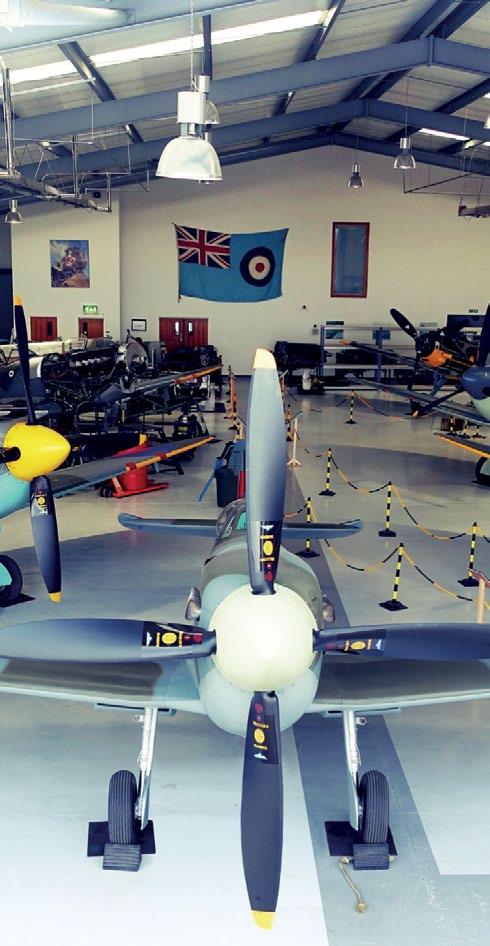
4 minute read
Clerk and Craft
and Craft Of clerk
Loyal to the core, William Cowper was a valued magistrate, dedicated clerk of the parliaments and influential Freemason. Dr Ric Berman tells his story
William Cowper (d. 1740), Secretary to Grand Lodge from 1723–27 and Deputy Grand Master in 1726–27, was not only one of the most influential magistrates on the Westminster bench, he was also clerk of the parliaments, effectively the head of administration for the House of Lords and House of Commons.
Born in Hertfordshire in the 17th century, Cowper was the eldest surviving son of Spencer Cowper, chancellor of the Duchy of Lancaster, attorney general to the Prince of Wales, and MP for Truro. He was also a nephew of Lord Cowper, who served as Lord Chancellor under Queen Anne and again under George I. Cowper’s family connections smoothed his path to appointment as clerk of the parliaments in 1716, and Cowper remained clerk until his death, when the position passed to his younger brother, Ashley.
Although the clerk’s office commanded only a modest annual salary of £40, it offered opportunities to earn additional income from ‘parliamentary services’. In 1717, for example, Cowper collected £279 for ‘delivering to the Chancery and Rolls Chapel several Acts of Parliament’, and similar sums for private members’ bills. He also received gratuities from those to whom he allocated parliamentary jobs and sinecures.
Alongside his role in Parliament, Cowper held senior positions within London’s magistracy, a role given only to those the administration believed dependable. He was elected chair of the City of Westminster bench in 1723, a post he held until December 1727, and chair of the Middlesex bench in 1729 and again in 1730. A probable reward was his appointment a few months later as patentee to the Commission of Bankrupts, a position described in the London Evening Post as ‘very valuable’. He was re-elected chair of the Middlesex bench in 1733.
Steadfast loyalty to the cause Cowper’s allegiance to the House of Hanover and the Whig government was formidable, and his Charge to the Grand Jury of Middlesex, delivered on 9 January 1723, is the epitome of loyalty:
It ought always to be a Matter of particular Distinction... that Justices would be vigilant to detect and produce to Punishment all those who... attempt the Subversion of the Great basis upon which stands all that is or can be dear to England and Protestants... It is... for our Religion, our Liberty and our Property.
Grand Lodge Minute Book, 1723
In another speech delivered on 30 June 1727 to the newly crowned George II and reported verbatim in the London Gazette, Cowper stated that the duty of the magistracy was ‘to preserve our current constitution in Church and State’.
The Magistrate... is trusted to uphold the Honour, the Dignity, and the Majesty of the State; to see that Order is observed; that equal Right be done according to known and approved Law... and ever to bear in Mind the high Nature, and vast importance of this Trust; and whoever assumes... such Powers upon any other Principle, is, and should be treated as, a Subverter of Peace, Order, and good Government, of the world, and an Enemy to human Society.
The parallels with the 1723 Constitutions are obvious. Not only was a Freemason to be ‘a peaceable Subject to the Civil Powers… never to be concerned in Plots and Conspiracies against the Peace and Welfare of the Nation’, but also ‘a good man and true… strictly to obey the moral law... a peaceable subject… cheerfully to conform to the laws of the country in which he resided... and submit to the decisions of the supreme legislature [and] the civil magistrate.’
Cowper amassed sufficient wealth to become a philanthropist, donating £100 towards a new town hall in Hertford, close to the family’s estate at Hertingfordbury Park. However, he suffered a financial setback towards the end of his life, a reverse stemming from litigation in Chancery involving his uncle’s will. The costs were onerous. Cowper was sued for unpaid debts and forced to sell a property in Lincoln’s Inn Fields.
Cowper died in 1740, just over a year after his wife. As the first Secretary to Grand Lodge and thereafter as Deputy Grand Master, he was a central figure in Freemasonry’s development, helping the Craft to reach the commanding heights of 18th-century society.

















